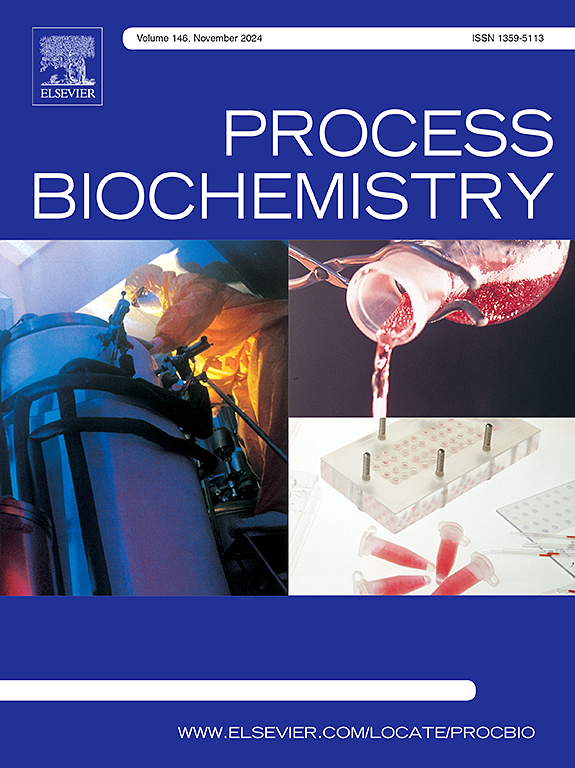Study on the antibacterial activity and mechanism of prodigiosin against Methicillin-resistant Staphylococcus aureus: Insights from metabolomic and transcriptomic analyses
IF 3.7
3区 生物学
Q2 BIOCHEMISTRY & MOLECULAR BIOLOGY
引用次数: 0
Abstract
Methicillin-Resistant Staphylococcus aureus (MRSA) is one of the pathogens that cause food poisoning. Prodigiosin (PG) is a kind of microbial secondary metabolites with antibacterial, anti-inflammatory, anti-tumor and other biological activities. In the present study, PG as the natural metabolite of Serratia marcescens was found to have the significant bacteriostatic activity against MRSA undergoing division and proliferation. It can damage cell walls, cell membranes and biofilms of MRSA, and cause leakage of proteins and nucleic acids. PG also could cause cells die due to the oxidative stress by inhibition of SOD and CAT activities. The differences of accumulation metabolites (DAMs) and expressed genes (DEGs) were mainly involved in ribosome, ABC transporters, DNA replication and repair, amino acid synthesis and metabolism, and carbohydrate metabolism according to the metabolomics and transcriptomics. In conclusion, the present study explored the bacteriostatic activity and inhibitory mechanism of PG, which will provide a research basis for PG’s development and application in food safety.
对耐甲氧西林金黄色葡萄球菌的抑菌活性及机制研究:代谢组学和转录组学分析的见解
耐甲氧西林金黄色葡萄球菌(MRSA)是引起食物中毒的病原体之一。Prodigiosin (PG)是一种具有抗菌、抗炎、抗肿瘤等生物活性的微生物次生代谢物。本研究发现PG作为粘质沙雷氏菌的天然代谢物,对处于分裂和增殖过程中的MRSA具有显著的抑菌活性。它可以破坏MRSA的细胞壁、细胞膜和生物膜,导致蛋白质和核酸的泄漏。PG还可通过抑制SOD和CAT活性导致细胞氧化应激死亡。根据代谢组学和转录组学分析,积累代谢物(DAMs)和表达基因(DEGs)的差异主要涉及核糖体、ABC转运体、DNA复制和修复、氨基酸合成和代谢以及碳水化合物代谢。综上所述,本研究探讨了PG的抑菌活性及其抑制机制,为PG在食品安全领域的开发应用提供研究依据。
本文章由计算机程序翻译,如有差异,请以英文原文为准。
求助全文
约1分钟内获得全文
求助全文
来源期刊

Process Biochemistry
生物-工程:化工
CiteScore
8.30
自引率
4.50%
发文量
374
审稿时长
53 days
期刊介绍:
Process Biochemistry is an application-orientated research journal devoted to reporting advances with originality and novelty, in the science and technology of the processes involving bioactive molecules and living organisms. These processes concern the production of useful metabolites or materials, or the removal of toxic compounds using tools and methods of current biology and engineering. Its main areas of interest include novel bioprocesses and enabling technologies (such as nanobiotechnology, tissue engineering, directed evolution, metabolic engineering, systems biology, and synthetic biology) applicable in food (nutraceutical), healthcare (medical, pharmaceutical, cosmetic), energy (biofuels), environmental, and biorefinery industries and their underlying biological and engineering principles.
 求助内容:
求助内容: 应助结果提醒方式:
应助结果提醒方式:


